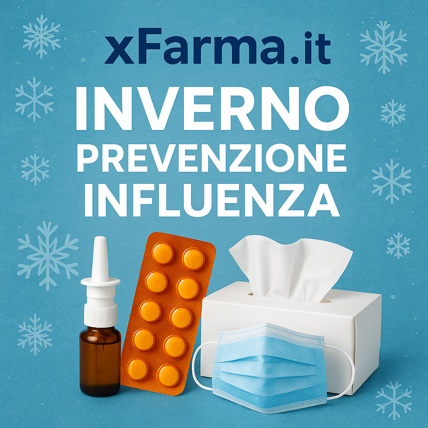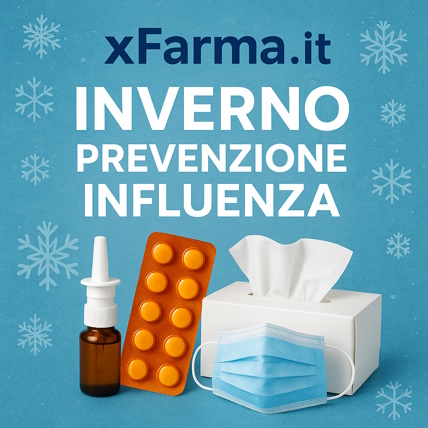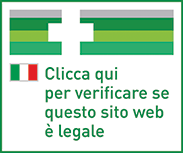Ship in Europe, Find out rates!
Levotuss Sciroppo Tosse 60mg/10ml Levodropropizina 10 Bustine

- box Delivery in Italy in 24/48 and free returns
- star3.000+ positive reviews
- dropboxOver 60,000 products in the catalog
Syrup based on Levodropropizina.
Therapeutic indications
Levotuss Syrup is used in the symptomatic therapy of cough.
Dosage and posology
The drug should be taken according to the following doses:
- Adults and children over 30 kg: one sachet containing 10 ml of syrup up to 3 times a day at intervals of at least 6 hours
Treatment should be continued until the cough subsides. However, if the cough is still present after 2 weeks of therapy, it is advisable to stop the treatment and ask your doctor for advice. In fact, cough is a symptom and the causal pathology should be studied and treated.
How to use
Open the sachet following the dotted line and ingest its contents.
Overdose
No significant side effects have been reported after drug administration up to 240 mg single dose and up to 120 mg tid for 8 consecutive days. There are known cases of overdose in children aged 2 to 4 years. These are cases of accidental overdose all resolved without consequences. In most cases, the patients experienced abdominal pain and vomiting and in one case, after taking 600 mg of levodropropizin, the patient experienced excessive sleep and decreased oxygen saturation. In case of overdose with evident clinical manifestations, immediately institute symptomatic therapy and apply the usual emergency measures (gastric lavage, activated charcoal meal, parenteral administration of liquid, etc.), if necessary.
Contraindications
- Hypersensitivity to the active substance or to any of the excipients.
- Administration of the drug should be avoided in patients with bronchorrhea and with reduced mucociliary function (Kartagener's syndrome, ciliary dyskinesia).
- Pregnancy and breastfeeding
- Do not administer to children under 2 years of age
Side effects
Palpitations, tachycardia, nausea, vomiting, diarrhea, erythema may occur during treatment with levodropropizin. Reactions reported as serious are urticaria and anaphylactic reaction. Most of the reactions that occur following levodropropizin are non-serious and symptoms have resolved with discontinuation of therapy and, in some cases, with specific pharmacological treatment. The reported adverse reactions (the frequency of which cannot be estimated from the available data) are as follows:
- Eye disorders: Mydriasis, bilateral blindness.
- Immune system disorders: Allergic and anaphylactoid reactions, eyelid edema, angioneurotic edema, urticaria.
- Psychiatric Disorders: Nervousness, sleepiness, personality alteration or personality disorder.
- Nervous system disorders: Syncope, dizziness, vertigo, tremors, paraesthesia, tonicoclonic convulsion and petit mal attack, hypoglycemic coma.
- Cardiac disorders: Palpitations, tachycardia, atrial bigeminy.
- Vascular disorders: Hypotension.
- Respiratory, thoracic and mediastinal disorders: Dyspnoea, cough, edema of the respiratory tract.
- Gastrointestinal disorders: Gastric pain, abdominal pain, nausea, vomiting, diarrhea.
- Hepatobiliary disorders: Cholestatic hepatitis.
- Skin and subcutaneous tissue disorders: Urticaria, erythema, rash, pruritus, angioedema, skin reactions, glossitis and aphthous stomatitis. Epidermolysis.
- Musculoskeletal and connective tissue disorders: Weakness of the lower limbs.
- General disorders and administration site conditions: General malaise, generalized edema, asthenia.
- Pediatric population: A case of somnolence, hypotonia and vomiting has been reported in a neonate following the nursing mother's intake of levodropropizin. Symptoms appeared after the feed and resolved spontaneously by suspending breastfeeding for a few feedings.
Pregnancy and breastfeeding
Studies of teratogenesis, reproduction and fertility as well as peri and postnatal studies did not reveal specific toxic effects. However, since a slight delay in weight gain and growth was observed in animal toxicology studies at a dose of 24 mg / kg and since levodropropizin is able to overcome the placental barrier in the rat, the use of the drug it is contraindicated in women who intend to become or are already pregnant as its safety of use is not documented. Studies in rats indicate that the drug is found in breast milk for up to 8 hours after administration. Therefore the use of the drug during breastfeeding is contraindicated.
Special warnings
The observation that the pharmacokinetic profiles of levodropropizin are not markedly altered in the elderly suggests that dose adjustments or modification of the dosing intervals may not be required in the elderly. However, in light of the evidence that sensitivity to various drugs is impaired in the elderly, special caution should be used when levodropropizin is administered to elderly patients. Caution is advised in patients with severe renal insufficiency (creatinine clearance below 35 ml / min).
It is advisable to use caution even in case of simultaneous intake of sedative drugs in particularly sensitive individuals. This medicine contains 4 g of sucrose per dose (10 ml): patients with rare hereditary problems of fructose intolerance, glucose-galactose malabsorption, or sucrase isomaltase insufficiency, should not take this medicine.
To be taken into consideration for administration to subjects with diabetes mellitus. The medicine contains methyl parahydroxybenzoate and propyl parahydroxybenzoate, which are known to cause urticaria. In general, para-hydroxybenzoates can cause delayed reactions, such as contact dermatitis and rarely immediate reactions with manifestation of urticaria and bronchospasm. Antitussive drugs are symptomatic and should only be used pending diagnosis of the underlying cause and / or therapy effect of the underlying disease. In the absence of information on the effect of food intake on drug absorption, it is advisable to take the drug between meals. Levotuss syrup does not contain gluten; therefore it can be administered to patients with celiac disease.
Expiry and retention
No particular indication for conservation
Warning : do not use Levotuss Sciropp Cough after the expiry date shown on the package.
Composition
A 10ml sachet of syrup contains
Active principle
Levodropropizin 60 mg
Excipients
Sucrose, methyl-para-hydroxybenzoate, propyl-para-hydroxybenzoate, citric acid monohydrate, sodium hydroxide, cherry flavor, purified water.
| Destination | Cost | Detail |
|---|---|---|
| Italy | €5,90* | 24/72H |
| Austria, France, Germany, Slovenia | € 13* | 3 days |
| Belgium, Luxembourg, Portugal, Netherlands, Spain | € 14* | 4 days |
| Bulgary, Cechia, Hungary, Poland, Romania, Slovakia | € 19* | 5 days |
| Denmark, Estonia, Finland, Ireland, Lithuania, Latvia ,Sweden | € 22* | 5 days |
| United Kingdom, Switzerland, Greece, Malta/td> | € 30* | 7 days |
| Canada | € 40 | 7 Days |
European shipments with express courier: FedEx, MBE, DHL
*For the shipment outside band B ther's an extra cost of 22€ *For the shipment outside band C ther's an extra cost of 30€ Delivery Times exclude Saturday and Holidays
For Islands and Areas of difficult Accessibility the shipments are made in 72 hours and the cost will be increased by 15€


